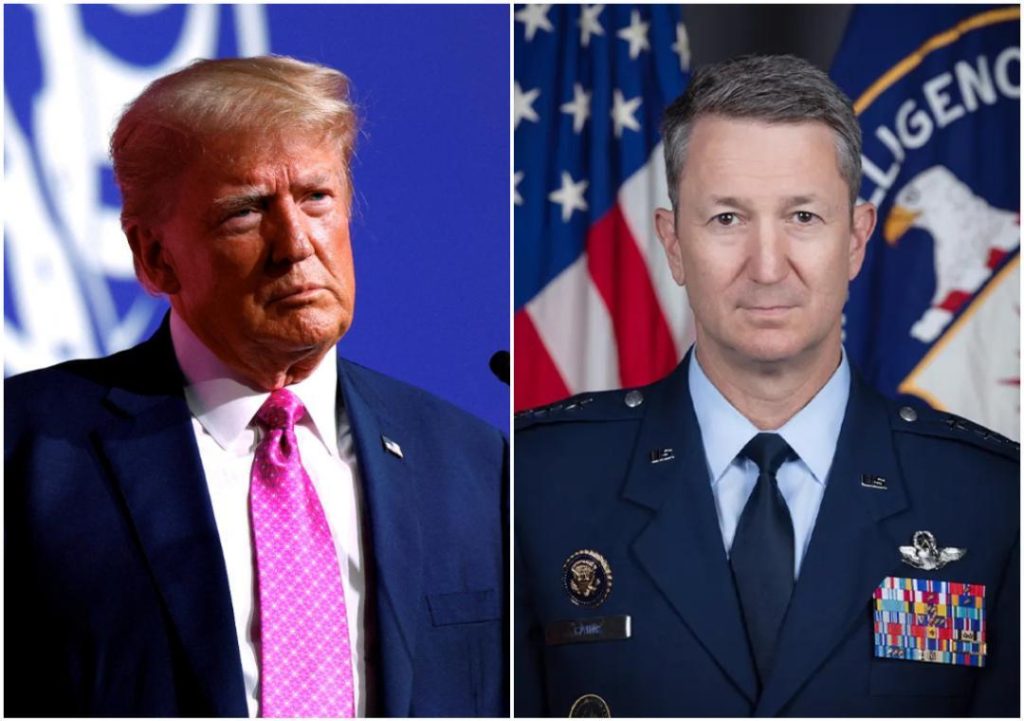
In a 1st, Trump nominates retired officer to serve as US military chief
In a shocking move, US President Donald Trump has fired the Chairman of the Joint Chiefs of Staff, General CQ Brown, and announced his replacement, marking a historic first in the nation’s military history. Trump has nominated former Lieutenant General Dan “Razin” Caine, a retired three-star general, to serve as the nation’s top military officer. This unprecedented decision has raised eyebrows among military experts and politicians alike, sparking a heated debate about the implications of such a move.
According to reports, General Brown was relieved of his duties with immediate effect, leaving many wondering about the reasons behind Trump’s sudden decision. A US official confirmed the news, stating that Brown’s departure was a result of Trump’s decision to nominate Caine to take over the position.
The nomination of a retired officer to serve as the Chairman of the Joint Chiefs of Staff is a significant departure from the traditional practice of appointing active-duty military personnel to the position. The Joint Chiefs of Staff is responsible for advising the President on military matters and overseeing the day-to-day operations of the armed forces.
Caine, who retired from the military in 2020, has extensive experience in the armed forces, having served over 30 years in the US Army. During his career, he has held various senior leadership positions, including serving as the Commander of the US Army Forces Command and the Deputy Commander of the US Central Command.
While Caine’s credentials are impressive, many are concerned about the potential implications of his nomination. Critics argue that bringing back a retired officer to serve in such a critical role could compromise the independence and integrity of the military. The Chairman of the Joint Chiefs of Staff is expected to provide objective advice to the President, free from political influence.
Moreover, the nomination of a retired officer could also raise questions about the continuity of military operations and the stability of the armed forces. The Joint Chiefs of Staff plays a crucial role in coordinating military operations, and abrupt changes in leadership can create uncertainty and confusion among military personnel.
In addition, the nomination of Caine has sparked concerns about the potential impact on the chain of command. As a retired officer, Caine may not have the same level of familiarity with the current military leadership structure and may require a period of adjustment to get up to speed.
Despite the concerns, Trump has expressed his confidence in Caine’s abilities, stating that he is “the right man for the job.” Trump’s decision to nominate a retired officer to serve as the nation’s top military officer may be seen as a sign of his willingness to shake up the status quo and bring in fresh perspectives.
However, the nomination of Caine has also raised questions about Trump’s commitment to the military and his understanding of the role of the Chairman of the Joint Chiefs of Staff. The Chairman is expected to provide independent advice to the President, rather than serving as a loyalist or political appointee.
The nomination of Caine is a significant development in the ongoing debate about the role of the military in US politics. As the nation’s top military officer, the Chairman of the Joint Chiefs of Staff plays a critical role in advising the President on military matters and overseeing the armed forces.
In conclusion, Trump’s decision to nominate a retired officer to serve as the nation’s top military officer is a historic first that has raised concerns among military experts and politicians alike. While Caine’s credentials are impressive, the nomination has sparked questions about the implications of such a move and the potential impact on the military. As the nation’s top military officer, the Chairman of the Joint Chiefs of Staff must be able to provide objective advice to the President, free from political influence. Only time will tell if Caine’s nomination is a positive step forward or a step backward for the US military.





